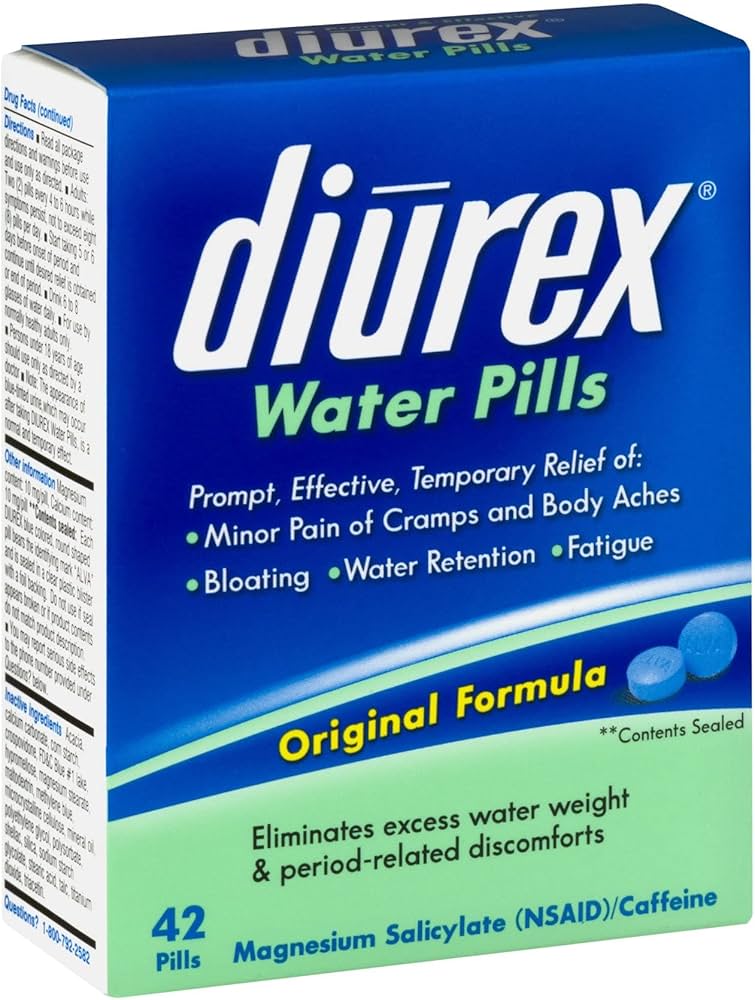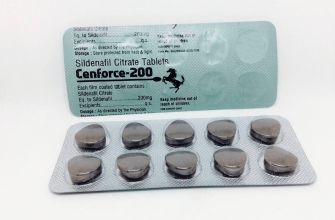Before you reach for an over-the-counter diuretic, understand this: Always consult your doctor. While readily available, these pills aren’t a harmless solution for weight loss or fluid retention. Misuse can lead to serious health consequences, including electrolyte imbalances and dehydration.
Many OTC diuretics contain ingredients like potassium-sparing diuretics and potassium supplements to mitigate potential side effects. However, individual reactions vary widely. Pay close attention to the dosage instructions and ingredient list. Certain medications interact negatively with diuretics; carefully review your prescription drugs before use.
Specific examples of common over-the-counter diuretics include those with bumetanide or furosemide as active ingredients. These are potent, requiring careful monitoring. Expect noticeable changes in urination frequency and volume. Drinking plenty of water is crucial to prevent complications. Don’t rely on OTC diuretics for long-term weight management. Sustainable lifestyle changes–diet and exercise–offer far safer and more effective results.
Understand the potential side effects: dizziness, muscle cramps, and nausea are common. Severe dehydration, requiring immediate medical attention, can occur with overuse or in individuals with pre-existing conditions. Always seek professional advice before starting any new medication regimen.
- Over-the-Counter Water Pills: A Comprehensive Guide
- Understanding Diuretics: How They Work and What They Do
- Types of OTC Diuretics: Choosing the Right One for You
- Potential Benefits and Risks of Using OTC Water Pills
- When to Consult a Doctor Before Using OTC Water Pills
- Safe Usage and Potential Side Effects of OTC Diuretics
- Monitoring Your Body
- Potential Interactions
- Understanding Side Effects
- When to Seek Medical Advice
- Finding Reliable Information and Choosing Reputable Brands
Over-the-Counter Water Pills: A Comprehensive Guide
Choose diuretics carefully, understanding their purpose and potential side effects. Over-the-counter diuretics primarily target fluid retention, not weight loss.
Look for products containing ingredients like potassium-sparing diuretics. This helps minimize the risk of electrolyte imbalances.
Always follow the label instructions precisely. Exceeding the recommended dosage can lead to health problems.
Consult your doctor before using over-the-counter water pills, especially if you have pre-existing medical conditions like heart disease, kidney disease, or high blood pressure.
Common side effects include dizziness, dehydration, and frequent urination. If you experience severe or unusual side effects, stop using the medication and consult a doctor immediately.
Remember, these pills are not a quick fix for weight loss. Combine their use with a balanced diet and regular exercise for optimal health benefits.
Understand that these medications are temporary solutions for fluid retention. Long-term use requires medical supervision.
Explore alternative approaches like increasing your water intake to manage fluid retention naturally before considering diuretics.
Pay attention to your body’s response. If you feel unwell, discontinue use and seek medical advice.
Dietary changes, such as reducing sodium intake, can significantly reduce fluid retention, often eliminating the need for over-the-counter medications.
Understanding Diuretics: How They Work and What They Do
Diuretics, commonly known as water pills, increase urine production by affecting how your kidneys handle sodium and water. They work in different ways depending on the type of diuretic.
Loop diuretics, such as furosemide, powerfully block sodium reabsorption in your kidneys’ loop of Henle, leading to significant fluid excretion. This makes them effective for managing conditions like severe heart failure and edema.
Thiazide diuretics, including hydrochlorothiazide, primarily act on the distal convoluted tubule, a later stage of kidney filtration. They inhibit sodium reabsorption to a lesser degree than loop diuretics, resulting in a milder diuretic effect. They’re often prescribed for hypertension and edema.
Potassium-sparing diuretics, such as spironolactone, conserve potassium while promoting sodium and water excretion. This makes them a valuable option for people at risk of low potassium levels, but their effect is usually less pronounced than loop or thiazide diuretics.
Before using over-the-counter diuretics, consult a healthcare professional. They can assess your individual needs and determine the appropriate type and dosage to minimize potential side effects, such as dehydration, electrolyte imbalances, and dizziness. Regular monitoring of your blood pressure and electrolyte levels is crucial, especially when using diuretics regularly.
Remember, diuretics address symptoms, not underlying causes. They’re helpful in managing fluid retention associated with certain medical conditions, but they’re not a replacement for proper diagnosis and treatment.
Types of OTC Diuretics: Choosing the Right One for You
Select a diuretic based on your specific needs and always consult your doctor before starting any new medication, especially if you have pre-existing health conditions.
Potassium-sparing diuretics, like amiloride, gently increase urine production while preserving crucial potassium levels. This is a good choice if you are at risk of low potassium.
Loop diuretics, such as furosemide (available by prescription only), are powerful and rapidly remove excess fluid. They are often used for severe fluid retention, but carry a higher risk of side effects, including potassium loss. Therefore, they’re typically not available over-the-counter.
Thiazide diuretics, like hydrochlorothiazide (prescription only), work by blocking sodium reabsorption in the kidneys, promoting increased urination. They’re commonly used for high blood pressure but require medical supervision.
Over-the-counter options usually focus on ingredients like caffeine or dandelion extract which have mild diuretic effects. Caffeine’s diuretic action is fairly short-lived, while dandelion’s effect is less understood scientifically and its effectiveness varies.
Pay close attention to the active ingredient and dosage. Follow label instructions carefully. Monitor your body’s response and report any unusual symptoms to your healthcare provider immediately. Remember, OTC diuretics are not a substitute for professional medical advice.
Potential Benefits and Risks of Using OTC Water Pills
OTC water pills, or diuretics, primarily aim to reduce fluid retention. This can lead to several benefits:
- Reduced bloating: Many experience noticeable decreases in bloating and swelling, particularly in the legs and ankles.
- Improved blood pressure (in some cases): For individuals with mild hypertension, diuretics might contribute to lower blood pressure readings. However, consult your doctor before using them for this purpose.
- Short-term weight loss: Water weight loss is common, leading to a temporary reduction on the scale. Remember, this isn’t actual fat loss.
However, using OTC water pills carries risks:
- Electrolyte imbalance: Diuretics flush out essential electrolytes like potassium, sodium, and magnesium. This imbalance can cause muscle cramps, weakness, fatigue, and heart irregularities.
- Dehydration: Excessive fluid loss leads to dehydration, causing dizziness, headaches, and decreased performance.
- Medication interactions: Diuretics can interact negatively with other medications, including some heart medications, blood thinners, and diabetes drugs. Always disclose all your medications to your doctor or pharmacist.
- Kidney problems: Long-term or improper use can strain the kidneys. Individuals with pre-existing kidney issues should avoid OTC water pills.
- Low blood pressure: Diuretics can lower blood pressure excessively, particularly in individuals already having low blood pressure. This can lead to fainting or lightheadedness.
Before using OTC water pills:
- Consult your doctor: Discuss your health conditions and medications. They can assess your suitability for diuretics and advise on safe usage.
- Follow dosage instructions carefully: Never exceed the recommended dose. Overdosing can have serious consequences.
- Stay hydrated: Drink plenty of water to mitigate dehydration risks. However, don’t overcompensate; follow your doctor’s guidelines.
- Monitor your body: Pay attention to any adverse effects, such as muscle weakness, dizziness, or irregular heartbeat. Stop use immediately and consult your doctor if problems arise.
Remember, OTC water pills are not a solution for long-term weight management or chronic health conditions. They offer temporary relief for certain symptoms but should be used cautiously and under medical supervision.
When to Consult a Doctor Before Using OTC Water Pills
Always talk to your doctor before using over-the-counter water pills if you have heart, liver, or kidney disease. These conditions can be worsened by diuretics.
Consult your physician if you’re taking other medications, including prescription drugs and supplements. Interactions can occur, potentially causing harmful side effects.
If you experience dizziness, lightheadedness, muscle weakness, or irregular heartbeat after starting OTC water pills, discontinue use and seek medical attention immediately. These symptoms suggest a potential problem requiring professional evaluation.
Schedule a doctor’s appointment if you have a history of dehydration or electrolyte imbalances. Water pills increase fluid loss, potentially exacerbating these conditions.
Women who are pregnant, breastfeeding, or trying to conceive should always consult a doctor before using any medication, including OTC water pills.
Individuals with high blood pressure should consult a doctor before using OTC water pills; they may interact negatively with blood pressure medications.
If you have diabetes, discuss the use of OTC water pills with your doctor. They can impact blood sugar levels.
If your fluid retention persists despite using OTC water pills for a reasonable period, seek professional medical advice. This may indicate an underlying health concern requiring further investigation.
Safe Usage and Potential Side Effects of OTC Diuretics
Always follow the label instructions precisely. Never exceed the recommended dosage. Drink plenty of water throughout the day to prevent dehydration, a common side effect.
Monitoring Your Body
Pay close attention to your body’s response. If you experience dizziness, lightheadedness, muscle cramps, or excessive thirst, stop taking the diuretic and consult your doctor immediately. These can indicate dehydration or electrolyte imbalance.
Potential Interactions
Inform your doctor or pharmacist about all medications you’re currently taking, including prescription drugs, over-the-counter medications, and supplements. Some diuretics interact negatively with other medications, potentially causing harmful effects. This includes certain heart medications, blood pressure drugs, and pain relievers.
Understanding Side Effects
| Side Effect | Description | Action |
|---|---|---|
| Dehydration | Excessive thirst, dry mouth, dizziness | Drink more water; stop usage and consult a doctor if symptoms persist. |
| Electrolyte imbalance | Muscle weakness, cramps, irregular heartbeat | Seek medical attention immediately. |
| Low blood pressure | Dizziness, lightheadedness, fainting | Stop usage and consult a doctor. |
| Increased urination | Frequent trips to the bathroom | This is expected, but excessive urination warrants medical attention. |
When to Seek Medical Advice
Consult your doctor before using OTC diuretics if you have any underlying health conditions, such as heart disease, kidney disease, liver disease, or diabetes. They can help determine if diuretics are safe for you and discuss potential risks.
Finding Reliable Information and Choosing Reputable Brands
Consult your doctor or pharmacist before using any over-the-counter water pill. They can help you determine if a water pill is right for you and recommend a safe and effective brand.
Check the product label carefully. Look for information like the active ingredient, dosage, and any potential side effects. Compare different brands to find one that fits your needs and preferences. Pay attention to manufacturing information; reputable companies will clearly list their contact information and manufacturing location.
Read independent reviews and ratings from trusted sources like consumer advocacy groups. These sources can provide unbiased opinions on the effectiveness and safety of various water pill brands.
Prioritize brands with a long history and positive reputation in the pharmaceutical industry. This suggests a commitment to quality control and product safety.
Be wary of brands making exaggerated claims or promising unrealistic results. Legitimate brands will present factual information and highlight any limitations.
Always compare prices from various pharmacies and online retailers. However, prioritize quality and safety over price.
If you experience any unexpected side effects, stop using the water pill immediately and contact your healthcare provider.




